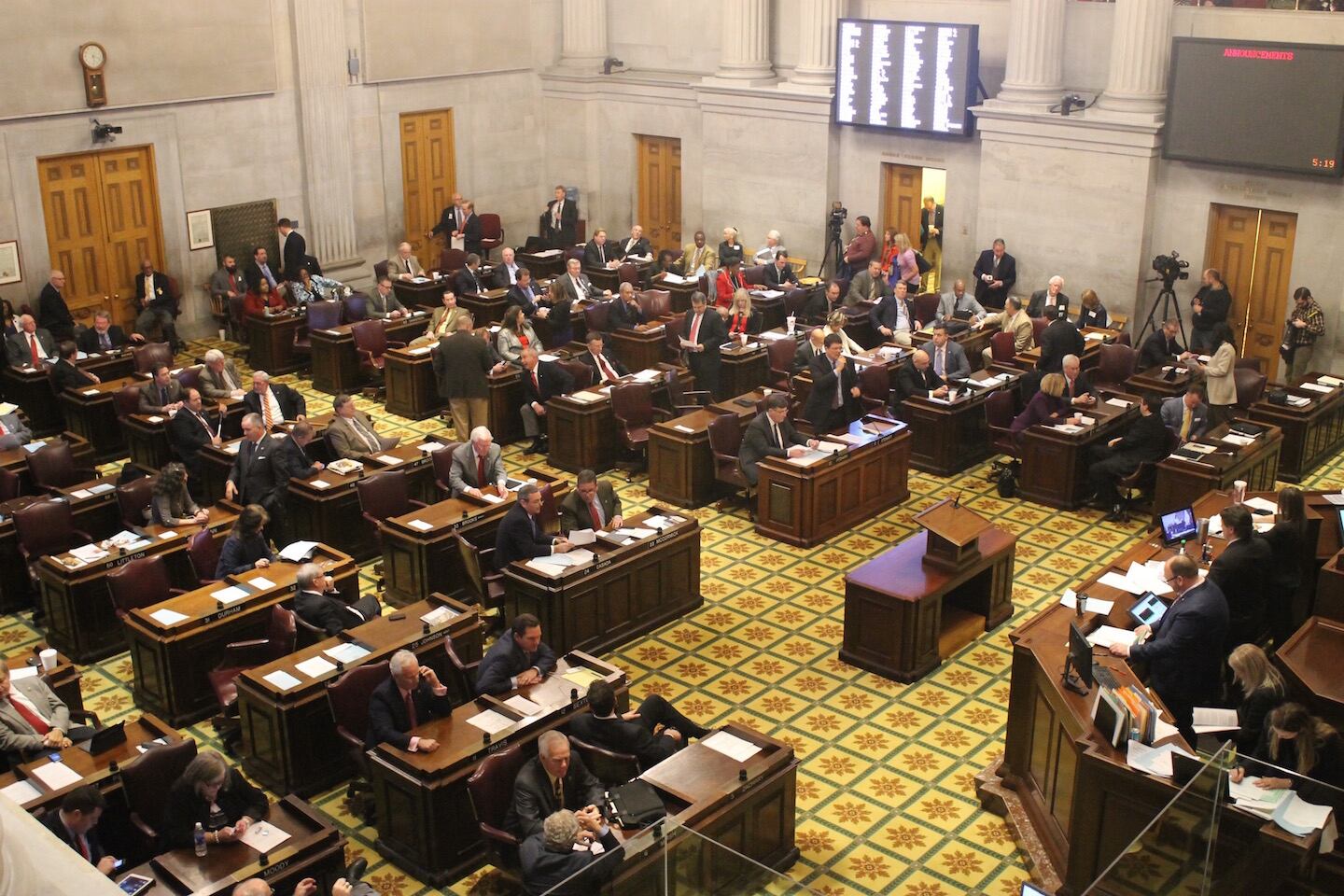Tennessee parents upset about local public school policies requiring masks or virtual learning could get state funding to send their child to a private school under a voucher proposal filed this week by two Republican lawmakers.
Rep. Michael Curcio and Sen. Mike Bell want to expand a voucher program approved by the legislature in 2019 but halted in 2020 by a Tennessee judge for applying only to students in Memphis and Nashville. The case is under appeal, with arguments scheduled before the Tennessee Supreme Court in February.
The bill would expand the law to make vouchers available to students in any Tennessee district that mandates masks or does not offer at least 180 days of in-person learning due to the coronavirus pandemic for the three upcoming school years beginning on Sept. 1, 2022.
However, it does not afford the same opportunity for students whose parents are upset about the absence of a mask mandate, or would like their student to switch to virtual learning when COVID cases surge.
The bill is an effort to promote parent choice while disincentivizing districts from adopting COVID mitigation strategies opposed by Gov. Bill Lee and other GOP leaders in Tennessee.
Last summer after seeing a dramatic drop in state test scores blamed partly on virtual learning, House Speaker Cameron Sexton threatened voucher legislation for districts whose leaders require masks or shutter their buildings. Sexton, who voted against the voucher law in 2019 before becoming speaker, declined to comment Tuesday about Curcio’s bill.
“Speaker Sexton has not seen the bill language as of yet,” said spokesman Doug Kufner.
In an interview with Chalkbeat, Curcio said his proposal aims to give parents choices for their child’s education — not to punish school systems — through the voucher program known as education savings accounts.
“I firmly believe in local control and local school boards setting policy for their districts,” said Curcio, of Dickson. “At the same time, if a parent questions whether those decisions are right for their child, they should be able to take advantage of an education savings account.”
The 2019 law provided voucher eligibility to students in districts that have a high concentration of low-performing “priority schools,” or have schools in the state’s school turnaround district program known as the Achievement School District. That criteria applied to Memphis and Nashville, where leaders didn’t want the program.
Curcio’s bill would add a pandemic provision to also extend eligibility statewide for any district that meets those criteria.
Curcio believes statewide application would address a constitutional provision that suggests the legislature doesn’t have authority to create a major education program that applies to only two districts without local approval.
But Senate Minority Leader Jeff Yarbro said he would expect another legal challenge if the new bill passes and becomes law.
“What this really shows is that the legislature is using vouchers to punish school districts that get on the wrong side of Republican leaders,” said Yarbro, a lawyer from Nashville.
“First, they singled out Memphis and Nashville; now they’re singling out districts on the wrong side of last year’s culture wars. I don’t think we should pass any education policy that seeks to punish a district. And given that the voucher program has been halted by our courts as unconstitutional, it doesn’t make any sense to talk about expanding it,” Yarbro said.
Curcio disagrees. He said many parents believe their family is being held hostage by local school policies with which they disagree.
“If your kid’s been stuck at home while you’re trying to earn a living and provide for your family, you can say ‘enough is enough,’” he said. “School choice is a benefit, and I don’t think wealthy parents are the only ones who should be able to remove their child from a public school and send them to a private school if they think that’s what’s best.”
You can read a summary of the bill here.
Editor’s note: This story has been updated with details about current and proposed eligibility.








